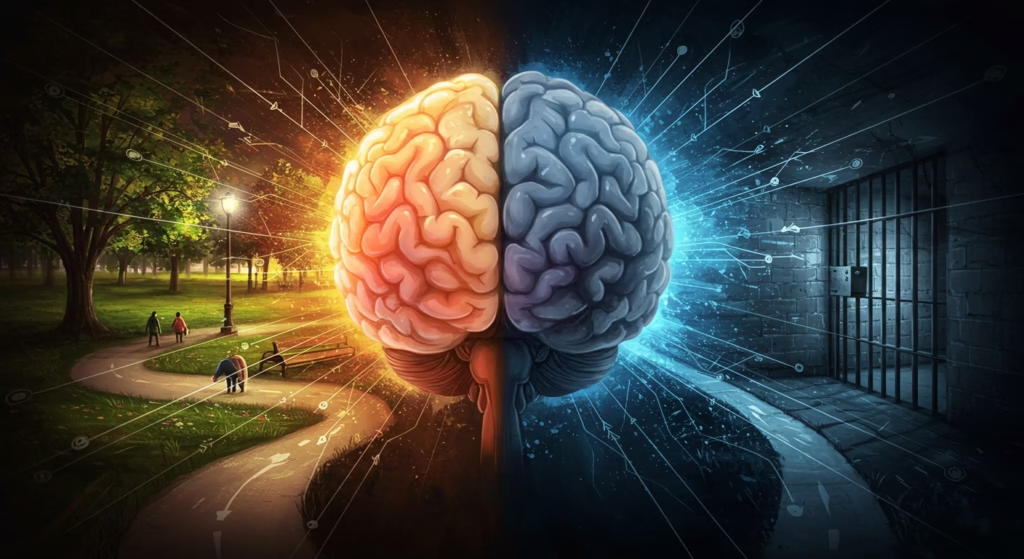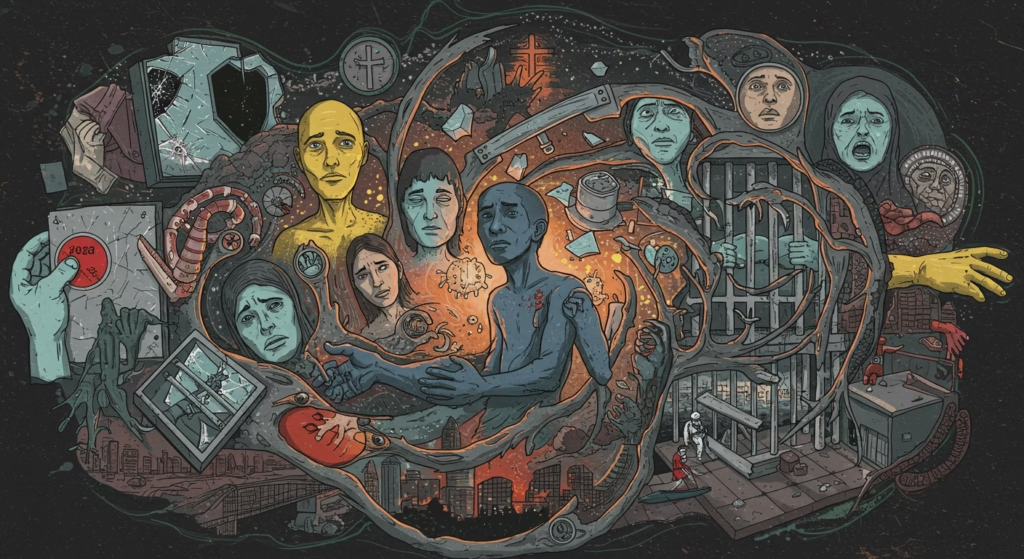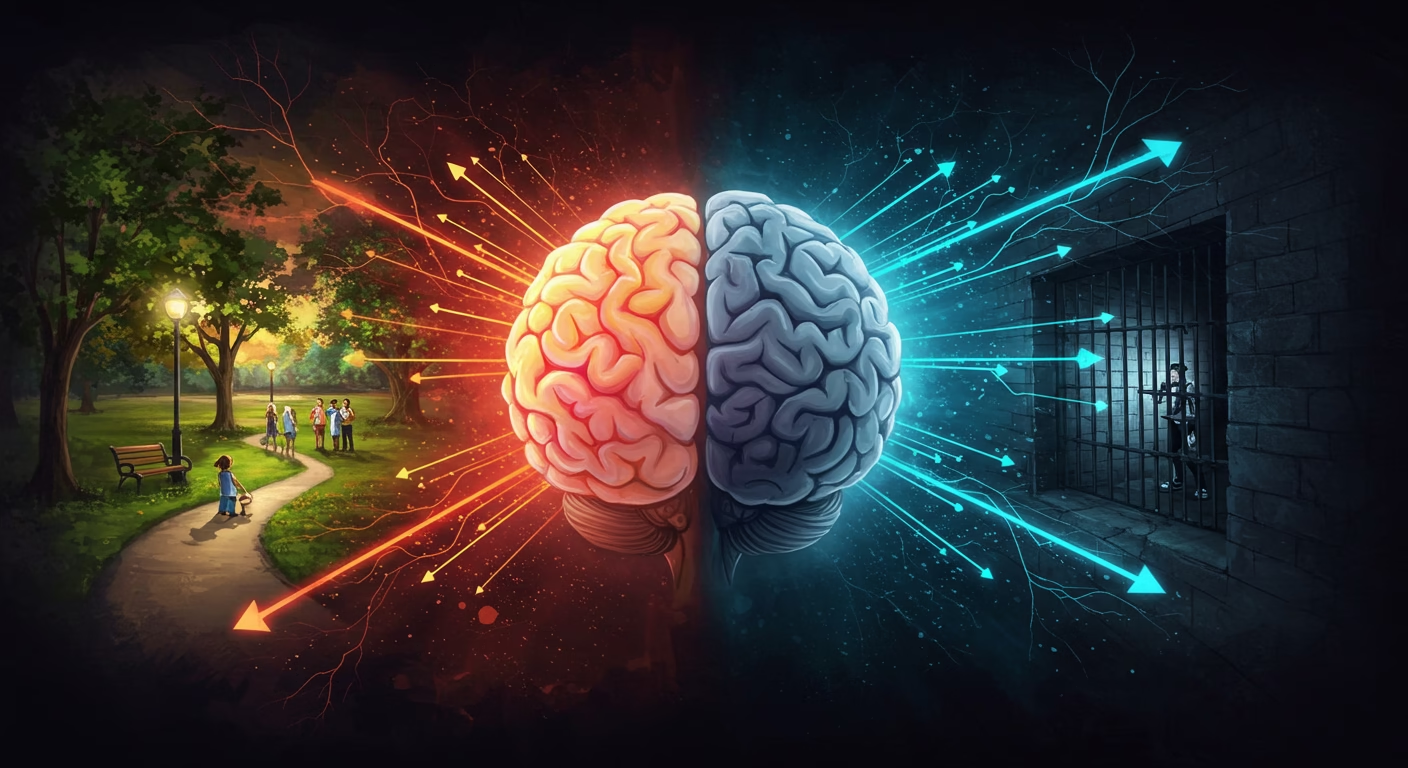Mental health and its connection to criminal behavior
Mental health and criminal behavior are complex and interconnected topics that have garnered increasing attention in both academic research and public discourse. Understanding the link between mental illness and criminality is crucial for addressing the root causes of certain behaviors and implementing effective prevention and intervention strategies. This article explores the intricate relationship between mental health and criminal behavior, delving into the various factors at play, the impact of childhood trauma, the role of substance abuse, and the challenges and opportunities in addressing mental health needs within the criminal justice system. By examining these key aspects, we aim to provide a comprehensive overview of this critical issue and highlight the importance of holistic approaches to supporting individuals with mental health challenges while promoting community safety.
Introduction to Mental Health and Criminal Behavior
In this section, we will explore how mental health issues can intersect with criminal behavior, shedding light on the complexities of this relationship.
Defining Mental Health and Criminal Behavior
Let’s break down what mental health and criminal behavior mean in the context of this discussion, setting the stage for examining their correlation.
Historical Perspectives on the Connection
Exploring how society has viewed the link between mental health and criminal behavior over time can provide valuable insights into our current understanding.
Understanding the Link Between Mental Illness and Criminality
Delving deeper, we will examine the common mental health disorders often associated with criminal behavior and the factors that contribute to this complex relationship.
Common Mental Health Disorders Associated with Criminal Behavior
From anxiety to personality disorders, we’ll explore the mental health conditions that are frequently linked to criminal activities.
Factors Contributing to the Intersection of Mental Illness and Crime
Unpacking the various factors that can lead individuals with mental health issues down paths that intersect with criminality will provide a more nuanced perspective.

The Role of Substance Abuse in Mental Health and Criminality
Substance abuse can further complicate the relationship between mental health and criminal behavior. Understanding this dynamic is crucial in addressing the complexities at play.
Dual Diagnosis: Substance Use Disorders and Mental Health Conditions
Taking a closer look at how individuals grappling with both substance abuse and mental health conditions face unique challenges in navigating the criminal justice system.
Impact of Substance Abuse on Criminal Behavior in Individuals with Mental Health Issues
Exploring the impact of substance abuse on criminal behavior within the context of mental health sheds light on the need for holistic interventions.
Impact of Childhood Trauma on Mental Health and Criminal Behavior
Childhood trauma can significantly impact a person’s mental well-being and, in turn, their potential involvement in criminal activities. Understanding this connection is crucial for early intervention and support.
Types of Childhood Trauma and their Effects on Mental Health
From neglect to abuse, we will examine the diverse forms of childhood trauma and their lasting effects on mental health outcomes.
Link Between Childhood Trauma, Mental Health, and Criminality
Exploring how childhood trauma can shape an individual’s mental health trajectory and potentially lead to criminal behavior provides valuable insights into prevention and treatment strategies.
Addressing Mental Health Issues in the Criminal Justice System
When it comes to mental health and criminal behavior, the justice system faces a unique set of challenges. Identifying and addressing mental health needs within the system can be like finding a needle in a haystack. However, with the right models of intervention, progress can be made in supporting individuals with mental health issues.
Challenges in Identifying and Treating Mental Health Needs in the Justice System
Spotting mental health issues in a sea of legal complexities is no easy task. Often, individuals with mental health needs may not receive adequate treatment or support, leading to a cycle of repeat offenses. Lack of resources, stigma, and limited training can further complicate efforts to address these needs effectively.
Models of Mental Health Interventions within the Criminal Justice System
Despite the challenges, there are innovative models of intervention making waves in the criminal justice system. From specialized court programs to mental health diversion initiatives, these approaches aim to provide tailored support and treatment to offenders with mental health conditions, ultimately promoting rehabilitation over punishment.
Strategies for Preventing Criminal Behavior Related to Mental Health
Prevention is key when it comes to addressing the intersection of mental health and criminal behavior. By implementing early intervention programs and community-based support initiatives, we can work towards breaking the cycle and supporting at-risk individuals before they come into contact with the justice system.
Early Intervention Programs for At-Risk Individuals
Identifying individuals at risk of criminal behavior due to mental health challenges early on can make a world of difference. By offering targeted interventions, such as counseling, support groups, and skill-building programs, we can address underlying issues and empower individuals to make positive choices.
Community-Based Mental Health Support and Crime Prevention Initiatives
Communities play a vital role in supporting mental health and preventing crime. By fostering partnerships between mental health providers, law enforcement, and community organizations, we can create a network of support that addresses the root causes of criminal behavior, promotes mental wellness, and enhances community safety.
Supporting Rehabilitation and Reintegration for Offenders with Mental Health Needs
For offenders with mental health needs, the journey doesn’t end at conviction. It’s crucial to focus on rehabilitation and reintegration, offering therapeutic approaches within correctional settings and ensuring continuity of care post-release to support individuals in leading healthy, crime-free lives.
Therapeutic Approaches in Correctional Settings for Offenders with Mental Illness
Prisons should be more than just punitive environments; they should be places of healing and growth. By implementing therapeutic approaches such as counseling, group therapy, and mental health education within correctional settings, we can support offenders in addressing their mental health needs and building a foundation for positive change.

Post-Release Support and Continuity of Mental Health Care
The transition from incarceration back to the community can be a critical time for individuals with mental health needs. By providing post-release support, including access to mental health services, housing assistance, and employment opportunities, we can help offenders successfully reintegrate into society and reduce the likelihood of reoffending.In conclusion, the intersection of mental health and criminal behavior underscores the need for a nuanced and compassionate approach to addressing these complex issues. By recognizing the underlying factors contributing to criminality, promoting mental health awareness and support, and implementing targeted interventions, we can strive towards a more inclusive and rehabilitative justice system. It is through continued research, advocacy, and collaboration that we can work towards a society that prioritizes both mental well-being and public safety for all individuals.
